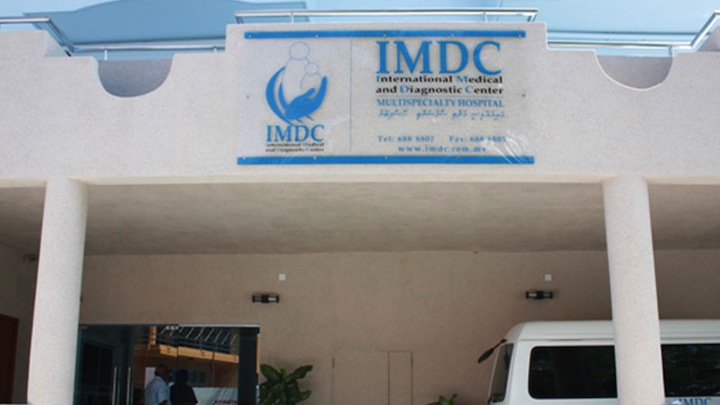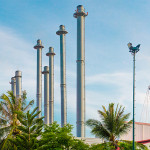A private hospital in Addu City is operating with a backup generator after the state owned utility Fenaka Corporation cut off its power supply.
Fenaka stopped providing electricity to the International Medical and Diagnostic Centre (IMDC) around 1:30pm yesterday after the hospital refused to pay electricity bills in solidarity with other businesses in the southernmost atoll.
Shops and business across the country have refused to pay bills in protest over the government’s decision to cease electricity subsidies in March, which led to monthly charges doubling and tripling in some cases.
“We are running the hospital on our backup generator. However, we still cannot produce enough electricity for the whole hospital,” said IMDC’s manager Fathuhulla Anees.
Anees said the hospital was only able to start the generator at around 11:00pm last night, causing a lot of difficulties in providing medical assistance to the 10 patients currently admitted at the 38-bed capacity hospital in the Hithadhoo ward of Addu City.
Hospital staff worked by candlelight until technical problems with the generator were resolved.
“We had to discharge some of the patients and transfer others to the regional hospital, because we were unable to provide urgent services,” he said.
Fenaka is the main electricity provider in the atolls and operates in 151 of the 188 inhabited islands of the Maldives.
Former health minister Dr Mariyam Shakeela – a shareholder in the Simdi Company that operates the hospital – has condemned the corporation’s move as inhumane.
In a tweet last night, Shakeela slammed Fenaka for cutting off electricity services to a hospital “without giving the opportunity to find a solution”.
Fenaka also reportedly cut off electricity to the Simdi showroom in Hithadhoo on Sunday.
Shakeela lost the health minister’s post in August last year after pro-government MPs voted against her reappointment to the cabinet. She has since been critical of the president Abdulla Yameen’s administration and has participated in an anti-government rally on May 1.
A businessman in Addu City meanwhile has filed a case at the Hithadhoo magistrate court seeking a court order to compel Fenaka to continue providing services despite unpaid bills. The court initially granted a stay order pending a judgment in the case.
Anees, who is also suing Fenaka over the power cut, said the magistrate court has since ruled against the businessman.
“They wanted to cancel the stay order, so they just ruled that Fenaka can cut power if bills are not paid. I don’t believe we will get justice from the new magistrate at the court,” he said.
Anees said that the hospital will not pay the bill until the court orders them to do so. The hospital refused to accept bills for March and April.
“We are not paying it because we are not able to. We are not paying it because we think it is unjust and discriminatory,” he said.
Electricity charges in Addu City and Fuvahmulah are up to 37 per cent higher than in capital Malé, according to figures from Fenaka.
The government’s decision to cut electricity subsidies to businesses in March left more than 5,700 businesses in the atolls facing millions extra between them in electricity charges.
The government previously provided Fenaka with about MVR11 million (US$713,359) a month to subsidise electricity for atoll businesses, but this cost must now be borne by the companies themselves.







When solar tech is becoming more and more cheap, the gov should facilitate a move to integrate solar into the grid and create incentive for private parties to install them.
All businesses in Addu should get together and start their own private generation facility. They've done it before and can do it again.